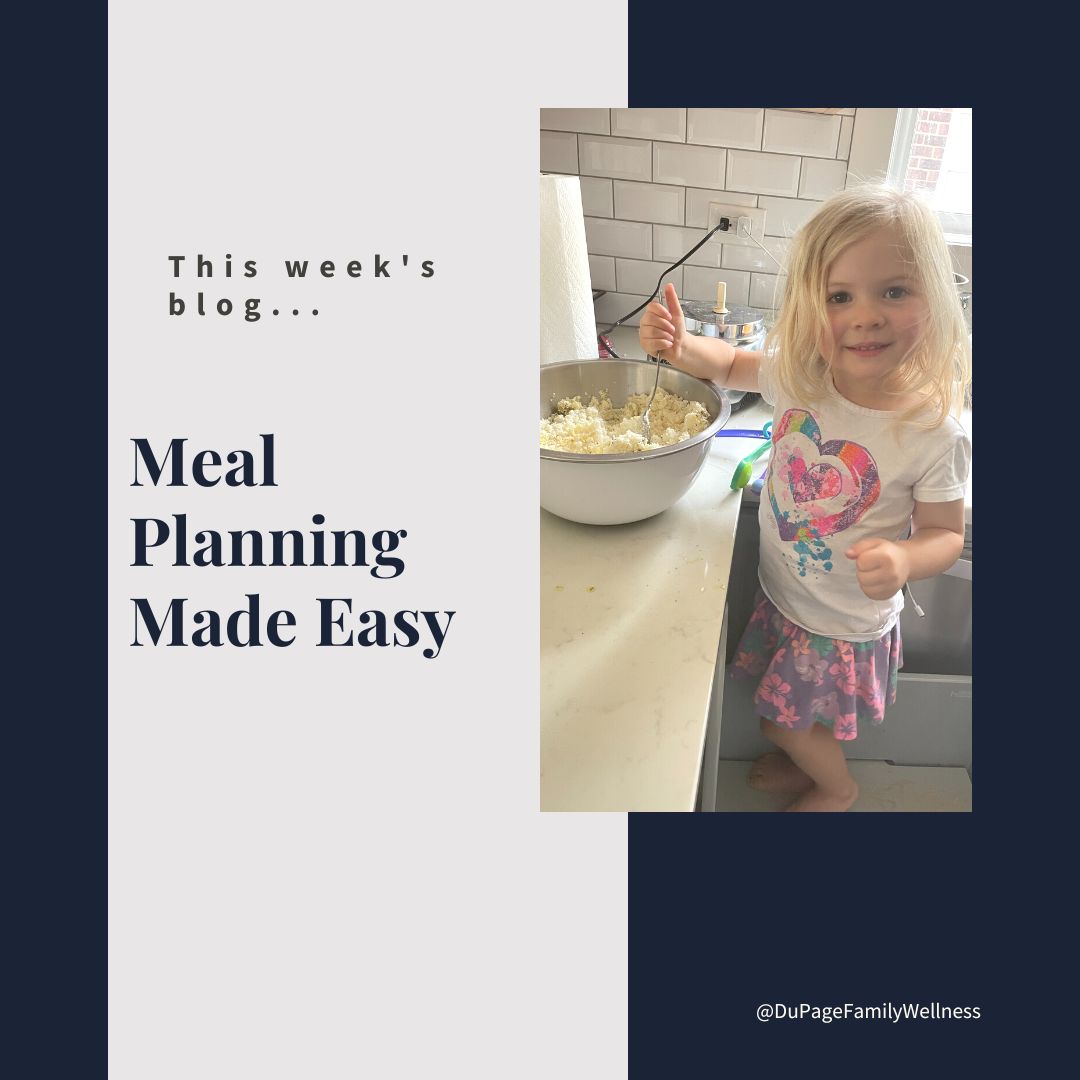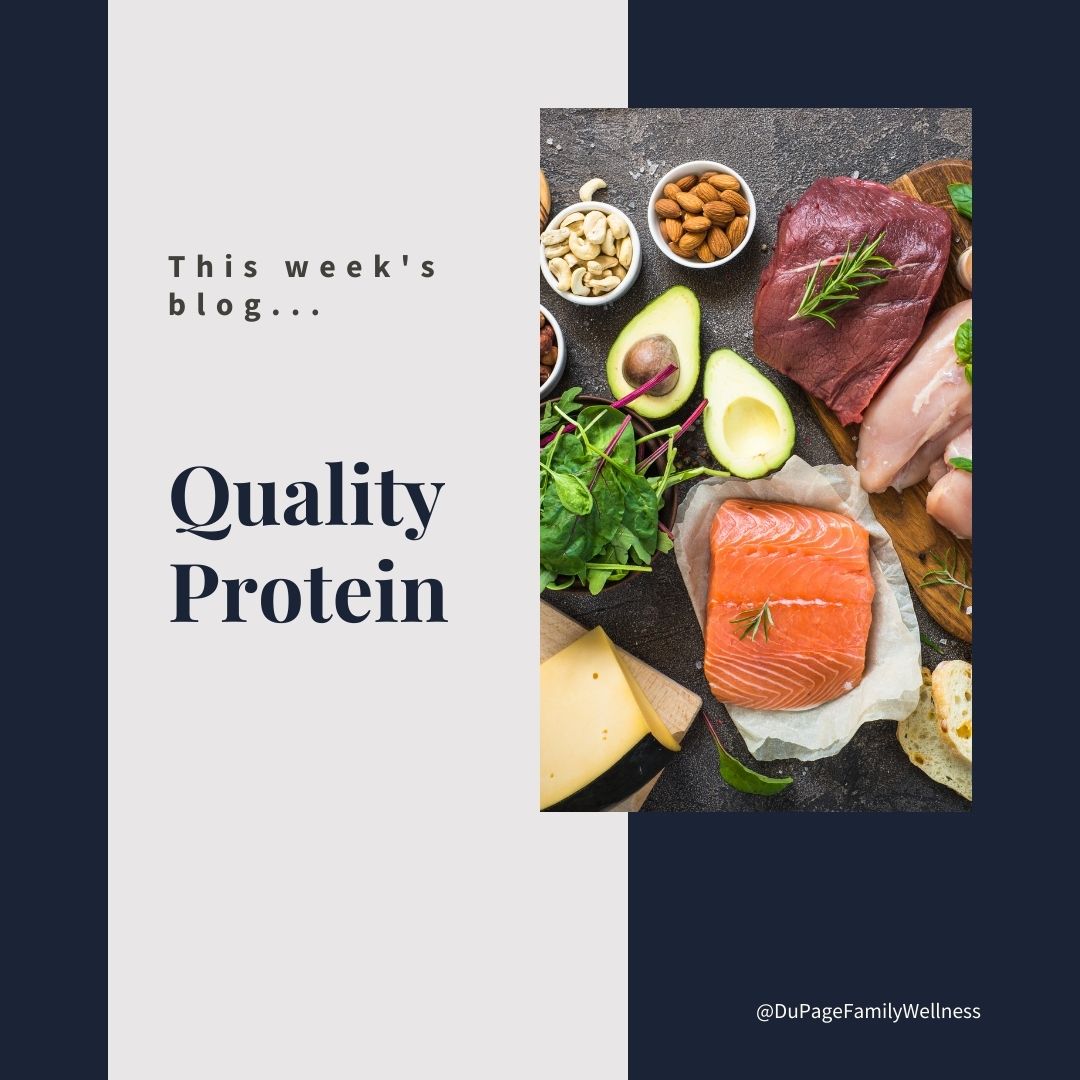 One of the most stressful things of a new school year can be getting meals together, especially packing lunches. If you find yourself wanting to give your kids something substantial but are struggling, this article is for you.
One of the most stressful things of a new school year can be getting meals together, especially packing lunches. If you find yourself wanting to give your kids something substantial but are struggling, this article is for you.
While the idea of providing your child a Pinterest-worthy lunch is fun, most of us just need to come up with something to get out the door. The good news is that you don’t have to make it pretty to make it nutritious.
Let’s look at ways to minimize the stress of packing a nutritious lunch.
Avoiding the After School Hangry
Quality fats and proteins will help your child maintain their energy and focus all day. Typical lunch foods are often highly processed (i.e. bread, crackers, chips, cookies, pop, juice boxes, candy, etc.).
Convenience foods may be easy to grab, but the high sugar and carbohydrate levels cause a blood sugar spike. This will result in a sudden blood sugar crash that will leave them feeling rotten.
On the other hand, a lunch with more fat and protein keeps blood sugar even. Your student will be satisfied and engaged all afternoon. You can also pack nutrient-dense snacks if your child doesn’t eat well at lunch or is struggling to get enough calories.
Take a look at some suggestions below.
Entrees
Sides
My Kid's Personal Favorites
- PaleoValley Beef Sticks (Maddie loves teriyaki, Piper digs the summer sausage and Harper is all about the original)
- Cherry Tomatoes from our garden preferably
- Cutie Oranges
- Hard Boiled Eggs
- Dried Mango or apricot
- Trail Mix (bonus if there are a few chocolate chips mixed in)
- Lara Bars
Read more ...
 Many of us grew up on sugar cereal, mac-n-cheese, fish sticks, and chicken nuggets. They were our favorite foods, but have you ever looked at the ingredient lists? If not, take a look, you may be surprised.
Many of us grew up on sugar cereal, mac-n-cheese, fish sticks, and chicken nuggets. They were our favorite foods, but have you ever looked at the ingredient lists? If not, take a look, you may be surprised.
Now that I know what goes into these foods, I question whether we can even call them food. They are more of a food-like substance made up largely of fillers and preservatives. So, are you eating food or a food-like substance?
When you focus on putting good nutrient-dense real food into your body, you will begin to feel the difference. You might be surprised that things you didn’t even realize were bothering you begin to change.
Let’s talk about REAL FOOD today, so you can feel great and make the best choices for your body.
What is Real Food?
Anything that is made in nature instead of a lab, things your great-grandparents would recognize as food, would be considered real foods. Quality meats, healthy fats, vegetables, nuts, and fruit are the foundation of all real food items.
If you can’t find it in nature, get it from a farmer, or grow it yourself, it probably isn’t real food. Even if you can find the original product in one of these places, there may be fillers or preservatives added in processing. It’s important to read the label to see if each ingredient on the list qualifies as real food.
What are the Benefits of Real Food
- decrease inflammation
- stabilize blood sugar
- regulate menstrual cycles
- clear skin (less acne)
- move toward your ideal weight
- increase and sustain energy (when focused on quality protein and fat)
- feeling satisfied longer
- gut healing (fewer digestive issues)
- increase positive feelings (less anxiety and depression)
How to Buy Real Food
Most real food items will be found on the perimeter of the grocery store. The packaged items in the middle of the store are generally highly processed and often contain a long list of ingredients.
When you want to buy real food, it is helpful to look for foods with just a few ingredients. For example, a popular brand of fruit snack lists over twenty ingredients on the package while strawberries only have one.
Read more ...
 I try to convince all of my patients to eat mostly "real food." Nutrient-dense unprocessed foods like vegetables, fruits, meats, and fish will help you feel your best.
I try to convince all of my patients to eat mostly "real food." Nutrient-dense unprocessed foods like vegetables, fruits, meats, and fish will help you feel your best.
This week, a patient told me that her biggest obstacle to eating real food was that her husband kept bringing home unhealthy food and snacks. When she asked him if he'd change his shopping habits he said, “Can't you just have better willpower?”
Having the willpower to not eat processed foods is INCREDIBLY HARD if not impossible. As humans, we are designed for survival. In the past, eating lots of high-calorie food actually helped our ancestors survive.
Let’s explore this design and how it influences our willpower today.
Our Ancestors
Food used to be scarce. When our hunter/gatherer ancestors were around, it was difficult to find or kill enough calories at times. When they did, they ate! They were not going to let food go to waste. If they had access to fresh honey or ripe berries, I'm sure that they had their fill.
They didn’t need any “willpower” because it was in their best interest to eat as much as they could. After all, it could be a while before they had access to food again. Unfortunately, this survival instinct hasn’t changed, but our environment has.
Today
For many of us, food is no longer scarce. Fatty, sweet, salty, decadent snacks abound. Most of the time these snacks are highly processed and not healthy. Nowadays we even have food scientists specifically working to make these foods addicting.
And yet, we BEAT OURSELVES UP for not having the willpower to avoid these snacks. We ask ourselves, "What's wrong with me that I can't avoid sweets, chips, or soda?"
Absolutely nothing is wrong with you. Generation after generation, you were wired to WANT to eat calorie-dense food when it was available. It was crucial for your survival.
Can you imagine if our ancestors had access to the snacks we have today? They would eat all the snacks too! As humans, we are wired to do just that.
Making a Plan
Once we understand this survival drive, we can stop beating ourselves up and make a plan that will better set us up for success. Here are some things to try as you strive to make healthy decisions.
- Think about what foods you WANT to eat to feel your best. These are the foods to keep in your house and other environments that you spend time in. Your willpower will only last so long, so make the foods you don't want to put in your body harder to access by leaving them at the store. (Note: Make this plan when you are not hungry, sad, mad, tired, etc.)
Read more ...
 Want to know my top trick for EASY meal planning and grocery shopping??
Want to know my top trick for EASY meal planning and grocery shopping??
It's an App called Mealime!
Mealime is a free meal-planning app that makes meal planning and grocery shopping a snap. It helps me avoid the 5 o’clock “what’s for dinner” problem, relieving me of this mental load and letting me enjoy my family instead.
I’m sure you’ve been there; it’s time for dinner but you have no idea what to make. With everyone hungry takeout or a quick processed meal may sound like a good option.
While eating out can be a fun experience every once in a while, doing so because it is the easiest option doesn’t always leave you feeling good about it. This habit can also be expensive and may prevent you from feeling free to eat out when you really want to.
Even though meal planning makes my day so much easier, it can be hard to stay on top of it each week. That is why I love the Mealime Meal Plans and Recipes app. Let’s take a look at this app to see how it can free you from dinner-time stress.
What is Mealime
The Mealime app provides easy-to-cook recipes. You simply input the number of servings you’d like to make (2, 4, or 6) and choose the recipes you want in your meal plan from their list of possibilities. Then Mealime…
- complies a grocery list for you to shop from.
- separates the list into categories such as produce, meat, spices, etc.
- allows you to remove the items that you already have in the kitchen.
- gives you the option to buy online through a number of local stores with pick-up or drop-off options.
You really couldn’t make meal planning any easier. You can literally plan your meals and shop for groceries in five minutes.
Food Allergies, Preferences, & Specific Ways of Eating
Many people who have food allergies, strong preferences, or specific ways of eating feel like these services aren’t for them. Mealime has taken all of this into consideration, allowing you to mark ingredients you don’t want to use and choose some popular ways of eating.
- Allergens - Mealime provides the option to mark any of the top 12 allergens. Then they filter out recipes containing these allergens. (For severe allergies please double-check everything before consuming.)
- Preferences - There is a section to mark food preferences from a long list of ingredients you may not like. Mealime will keep that in mind while choosing recipe suggestions.
- Specific ways of eating - You may choose a specific way of eating such as Paleo, vegetarian, low-carb, keto, etc. (I like to eat real food at least 80% of the time. I’ve found choosing the Paleo option helps me get to this goal by focusing on simple real foods.)
Tips & Tricks
- Share one account with your spouse, so either of you can shop or start cooking when the other isn’t there.
- The app is most easily used on a mobile device.
- Let family members help choose the meals. I let each of my kids pick one meal a week and then they help me cook it.
- Pick the number of servings based on the number of people you are feeding and how much leftovers you would like.
Read more ...
 For years we have been told that losing weight was as simple as burning more calories than we ate. Under this belief, I would diligently count my calories and stay in a calorie deficit. When the scale stayed the same, I was really confused.
For years we have been told that losing weight was as simple as burning more calories than we ate. Under this belief, I would diligently count my calories and stay in a calorie deficit. When the scale stayed the same, I was really confused.
Now I understand that our food is much more than just a source of calories. Our bodies are not simple scales balancing the calories in and calories out. The source of these calories matters much more than I imagined.
Complex chemical systems break down the food we eat in different ways. Ingredients really matter. What we eat causes hormonal changes that impact whether we are in storage mode or fat-burning mode. Natural foods will be used by the body in a different way than overly processed foods. This makes a huge difference when you are trying to lose weight.
Let’s take a walk down memory lane to see the type of foods I would buy thinking they were healthy. Keep in mind that my concern is with entire categories or types of food. I am not trying to single out the particular brand mentioned.
Food Companies Interests
Food marketers are tricky. They do a fantastic job making foods look and sound healthy to the consumer. Words like gluten-free, low-fat, heart-healthy, and all-natural make us believe the food is good for us. But do these words really indicate healthy options? Not necessarily.
We must remember that the bottom line is the main concern for companies that make these products. In addition to getting us to buy their products (often through tricky marketing), they will try to keep manufacturing costs as low as possible.
Some of the ways they keep their cost low is by making the food's shelf life as long as possible. This may include ingredients like preservatives that are not in our best interest.
It is also well known that companies make their food addictive so we want to keep eating and buying it. To do this they test combinations of sugar, salt, fat, and chemicals that taste good and keep us coming back for more. These corporate motivations are NOT in our best interest!
My Interests
I don’t want the cheapest ingredients in my body. I want my food to go bad! This sounds weird, but any food that will last on a shelf forever must be full of chemicals to keep the bacteria away.
And I certainly don’t want to be addicted to my food. We know that it’s hard to eat just one chip or cookie, but don’t struggle with the same addictive behavior when it comes to broccoli or an apple!
In no particular order, let's get started with the foods I thought were healthy. (Click on the picture to read the labels. A bigger image will pop up in a new window.)
Boca Burgers & Veggie Burgers
Myth: I use to think red meat was bad for me. Since soy patties have less fat and cholesterol than beef burgers, I thought they were healthier.
Now: I am not afraid of fat. I know cholesterol in my diet does not play a strong role in determining my body’s cholesterol levels. Now I look at each ingredient. If I wouldn’t want to eat the ingredients plain, then why would I eat them all combined in a food-like product?
The fact that this ingredient list is about 32 ingredients also concerns me. A good grass-fed burger from a cow that was healthy and getting to walk around and eat its natural diet only has one ingredient. I’d choose that any day!
Read more ...
 Did you know that every cell in your body contains protein? And that protein contains amino acids that are used to repair all the tissues in your body?
Did you know that every cell in your body contains protein? And that protein contains amino acids that are used to repair all the tissues in your body?
It’s true, your body needs protein to replenish itself. According to livestrong.com, protein helps “build muscles, produce new cells, regulate hormones and enzymes, heal wounds, and promote immune function”.
It is considered the most important macronutrient in building muscle, which can elevate your metabolic rate. And since protein also helps you feel full longer, it is great for those wanting to lose weight.
Since the body does not store protein, it depends on your diet to provide adequate amounts. Let’s look at the healthiest ways to get this protein.
Animal Protein
Meat can be a wonderful source of protein, but it is important to make sure you are getting quality meat! How the animal was raised, and what the animal did while it was alive, is extremely important. It is not just in the animals' best interest to be grass-fed or free-range, it has a direct impact on your health as well.
A study done by Mother Earth News compared eggs from free-range chickens with those produced commercially. It found that free-range eggs had:
- 2/3x more Vitamin A
- 2x more Omega-3
- 3x more Vitamin E
- 7x more Beta Carotene
In addition, grass-fed beef also has been found to contain higher levels of vitamins, antioxidants, and anti-inflammatory Omega 3 fatty acids when compared to conventional beef.
What about Plant Proteins?
While plants contain many necessary nutrients, they are not considered a complete protein because they lack one or more of the essential amino acids. It is possible to get the nutrients you need without eating meat, but it takes care to make sure you are getting everything you need. Plants contain compounds like oxalates and phytates which hamper your body's ability to absorb key minerals like zinc, magnesium, calcium, copper, and iron. Additionally, the vitamins in plants are often found in less active and less bioavailable forms.
Read more ...
 One of the most stressful things of a new school year can be getting meals together, especially packing lunches. If you find yourself wanting to give your kids something substantial but are struggling, this article is for you.
One of the most stressful things of a new school year can be getting meals together, especially packing lunches. If you find yourself wanting to give your kids something substantial but are struggling, this article is for you. 

 Many of us grew up on sugar cereal, mac-n-cheese, fish sticks, and chicken nuggets. They were our favorite foods, but have you ever looked at the ingredient lists? If not, take a look, you may be surprised.
Many of us grew up on sugar cereal, mac-n-cheese, fish sticks, and chicken nuggets. They were our favorite foods, but have you ever looked at the ingredient lists? If not, take a look, you may be surprised.  I try to convince all of my patients to eat mostly "real food." Nutrient-dense unprocessed foods like vegetables, fruits, meats, and fish will help you feel your best.
I try to convince all of my patients to eat mostly "real food." Nutrient-dense unprocessed foods like vegetables, fruits, meats, and fish will help you feel your best.  Want to know my top trick for EASY meal planning and grocery shopping??
Want to know my top trick for EASY meal planning and grocery shopping?? For years we have been told that losing weight was as simple as burning more calories than we ate. Under this belief, I would diligently count my calories and stay in a calorie deficit. When the scale stayed the same, I was really confused.
For years we have been told that losing weight was as simple as burning more calories than we ate. Under this belief, I would diligently count my calories and stay in a calorie deficit. When the scale stayed the same, I was really confused.  Did you know that every cell in your body contains protein? And that protein contains amino acids that are used to repair all the tissues in your body?
Did you know that every cell in your body contains protein? And that protein contains amino acids that are used to repair all the tissues in your body? 